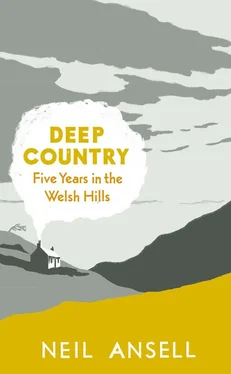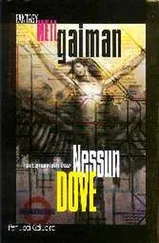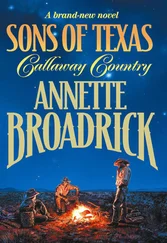Neil Ansell - Deep Country
Здесь есть возможность читать онлайн «Neil Ansell - Deep Country» весь текст электронной книги совершенно бесплатно (целиком полную версию без сокращений). В некоторых случаях можно слушать аудио, скачать через торрент в формате fb2 и присутствует краткое содержание. Город: London, Год выпуска: 2011, ISBN: 2011, Издательство: Hamish Hamilton, Жанр: Прочая документальная литература, на английском языке. Описание произведения, (предисловие) а так же отзывы посетителей доступны на портале библиотеки ЛибКат.
- Название:Deep Country
- Автор:
- Издательство:Hamish Hamilton
- Жанр:
- Год:2011
- Город:London
- ISBN:978-0-141-96133-0
- Рейтинг книги:4 / 5. Голосов: 1
-
Избранное:Добавить в избранное
- Отзывы:
-
Ваша оценка:
- 80
- 1
- 2
- 3
- 4
- 5
Deep Country: краткое содержание, описание и аннотация
Предлагаем к чтению аннотацию, описание, краткое содержание или предисловие (зависит от того, что написал сам автор книги «Deep Country»). Если вы не нашли необходимую информацию о книге — напишите в комментариях, мы постараемся отыскать её.
His dilapidated cottage, rented for £100 per year, is so exposed to the elements that it appears to rain uphill, and so remote that you can walk for twenty miles west without seeing a single other dwelling. As the years pass he feels himself dissolving into, and becoming, just another part of the landscape.
Deep Country — читать онлайн бесплатно полную книгу (весь текст) целиком
Ниже представлен текст книги, разбитый по страницам. Система сохранения места последней прочитанной страницы, позволяет с удобством читать онлайн бесплатно книгу «Deep Country», без необходимости каждый раз заново искать на чём Вы остановились. Поставьте закладку, и сможете в любой момент перейти на страницу, на которой закончили чтение.
Интервал:
Закладка:
Sawing logs for the fire with a handsaw was incredibly time-consuming, so I picked up an old chainsaw that had seen better days, which made my life a whole lot easier. The farmer would sometimes tell me of a tree which had blown down across one of his fences, and say that if I logged it he would bring it up to me with his tractor, which was a godsend. The chainsaw also had the added advantage of allowing me to earn a little money. It wasn’t good enough for clear-felling, but there were smaller jobs in these outlying woods, like thinning out twenty-year-olds, that weren’t worth sending in a team for. With no rent to speak of, and no bills, I didn’t need to earn much. I would write the occasional article and send it off for publication, and down near the village was the field centre for the University of Wales. The doctor who ran the place was a mine of information on local natural history, everybody came to him with their observations, and he would occasionally ask me to help out with a research project. All of these pieces of work had two things in common: I could do as little or as much as I wanted, whenever I wanted, and I could do them almost entirely alone, hardly ever having to see another person. In spring I got busy with two projects that I undertook every year. I had a hundred and twenty bird boxes in the woods that I checked weekly, recording the laying dates, the dates the birds began to brood, when they hatched. And finally, when the young birds were ready, I would ring the fledglings. And I had a four-mile beat of the river that I monitored for the river-bird survey. These two projects occupied me two days a week for several months each year.
I don’t recall ever having felt bored, not for a moment, in the same way that I don’t recall a moment of loneliness. There was simply too much to do, and this was a life lived without any of the time-saving devices that we take for granted. There was always firewood waiting to be chopped, and water that needed to be hauled. Just making a cup of tea would take ten times as long as elsewhere; there was no switch to flick. If there was no rain for two weeks, the water-butts would run dry, and all my water had to come from the well. With the reputation that Wales has for rain, this may seem unlikely, but in fact it would happen twice every year, once in summer and once in winter. On just a couple of occasions the well ran dry too, and I had to carry water all the way up the hill from the stream. The longest drought I ever experienced was six weeks; much more frequently there would be daily rain for weeks. The weather here is unpredictable, and it can change from one minute to the next. I remember one clear, sunny day in early summer I was coming down off the hill when I was overtaken by a sudden hailstorm. The hailstones were the largest I had ever seen, the size of marrowfat peas, and it had been so mild I was not even wearing a jacket. I pulled my jumper over my head and ran for home, the stones bouncing off my knuckles. There is no use railing against the weather, it is out of our hands. All you can do is learn to live with it, and welcome it in all its variety.
I had a daily routine dictated by the simplicity of my lifestyle, and an annual routine too, led by the seasons, the elements. We insulate ourselves against the world outside our windows, so that our lives can carry on regardless. Peel away those layers of insulation and the cycles of the natural world regain their true importance. I even developed my own rituals, such as seeing in the New Year from the summit of my hill. At the summer solstice, I would not sleep; I would walk overnight through the darkness deep into the hills, to see the sun rise on the longest day from a mountain top. Long before the first rays of light came over the horizon, as soon as there was the barest lifting of the darkness, the snipe would begin their strange drumming display flights, falling from the sky with the wind bleating through their tail feathers.
I couldn’t feel lonely. Loneliness is the product of an isol-ation that has not been freely chosen. You can of course feel more lonely in the midst of a crowd of people if those people are not giving you the human contact you desire, in the same way that poverty surrounded by affluence feels harsher, more shocking, than poverty shared. Solitude embraced is the opposite of loneliness. Friends would occasionally ask why I didn’t get myself a dog, for company, but of course they were missing the point: that I was trying to understand the meaning of a life lived without company. Having a pet would have felt like a compromise. And on a practical level, this was a far less suitable place for a dog than it appeared at first sight. I took care of a friend’s dog once for a week or so while the owner was on holiday. The dog was a Welsh border collie just like the farmer’s sheepdogs, but she had been born in the city and lived there all her life, and had never seen a sheep before. She spent her entire time hunkered down in the long grass in the garden, her eyes fixed on the sheep in the field below. And when I took her out for walks, I could never let her off the lead, for nowhere could be guaranteed sheep-free. It must have been a week of intense frustration for her.
In the summertime I generally bathed in the river. Often I would make a day of it, taking a packed lunch and striking out over the hill to a favourite location: a wide beach of smooth disks of slate, perfect for skimming, and a deep pool. The water off the mountains was always cold, but if the sun was warm it didn’t matter. I would spend hours there: bathing, swimming, washing my hair and my clothes. In the winter I would boil up kettlefuls of water and have strip-washes in front of the fire. Or there was a holiday let down by the river where they would leave the key in the porch for me so I could go in and use their bath and washing machine. A cheat perhaps, if this had been a dare, but there were no rules other than those I decided for myself as I went along.
Every week or two I would walk to the village shop to buy staples: tea, coffee, sugar, and so on. There was a petrol station in the village too, where I could get petrol for my chainsaw, and a couple of pubs, though I never felt tempted to walk down to the village of an evening for a night out. Not once. Rather than following the lanes, I would take a more direct and scenic route — through fields, over fences, along the riverbank. I could get there in just over an hour if I didn’t dawdle, though I usually did. Down the track past my little oak wood, then across a field towards the beech hanger. There was a tongue of bracken-covered moorland alongside the wood here, and the hillside fell sharply beneath the overhanging beech boughs. At the bottom of the wood there was a footpath that ran south the whole length of the wood. There were views of the river below, and it was a fine, full-grown beech wood, a haze of blue in the spring. The path eventually led to a bridge where my stream met the river. This was the head of the lanes; the track up to the farm and Penlan began here. There was a turning circle, which was also the point for rubbish collection, so I would drop mine off; I usually generated about a carrier bag’s worth a month. I would cross a footbridge over the long-abandoned railway track and follow the riverbank. About halfway to the village there was a break in the trees that fringed the riverside. A nice grassy spot to pause for a while, with a fallen tree to sit on, and a big shingly island where the common sandpipers nested. Another stream joined the river here; in summer I would pick my way across it on wobbly stepping stones, while in winter I would take a running jump and hope to clear it.
The bank became virtually impassable beyond this point, so I would cross a field on to the route once taken by the railway. I started in a deep cutting, overarched by trees, dark and boggy and filled with nettles. There was the ancient, rusted wreck of a car here that must have been rolled down the bank well over fifty years ago; I couldn’t tell the make but it had running boards. It felt as though I was walking through a tunnel. There was a tangible sense of history here, but soon the trees gave way and the sun came in. Here in the cutting walls I once saw a pair of weasels popping their heads in and out of a niche in the rocks. I always looked out for them every time I passed this way, but I never saw them here again. The ground fell away and I was on a bridge, not a tunnel, with the fields twenty feet below me to either side. But the real bridge over the river was long gone. The river here turned sharply, and tumbling over rocks it had gouged out a sheer bank perhaps forty feet high. I crossed one last stream, on a bridge of two logs, and the last part of my journey was through dense woodland high over the river. First mixed woodland, then stands of old conifers where the sparrowhawks nested. I would watch out for them here, and sometimes I would even see them over the village. Finally I would emerge from the woods and, after crossing one field of head-high corn, come to the road-bridge that led to the village.
Читать дальшеИнтервал:
Закладка:
Похожие книги на «Deep Country»
Представляем Вашему вниманию похожие книги на «Deep Country» списком для выбора. Мы отобрали схожую по названию и смыслу литературу в надежде предоставить читателям больше вариантов отыскать новые, интересные, ещё непрочитанные произведения.
Обсуждение, отзывы о книге «Deep Country» и просто собственные мнения читателей. Оставьте ваши комментарии, напишите, что Вы думаете о произведении, его смысле или главных героях. Укажите что конкретно понравилось, а что нет, и почему Вы так считаете.












